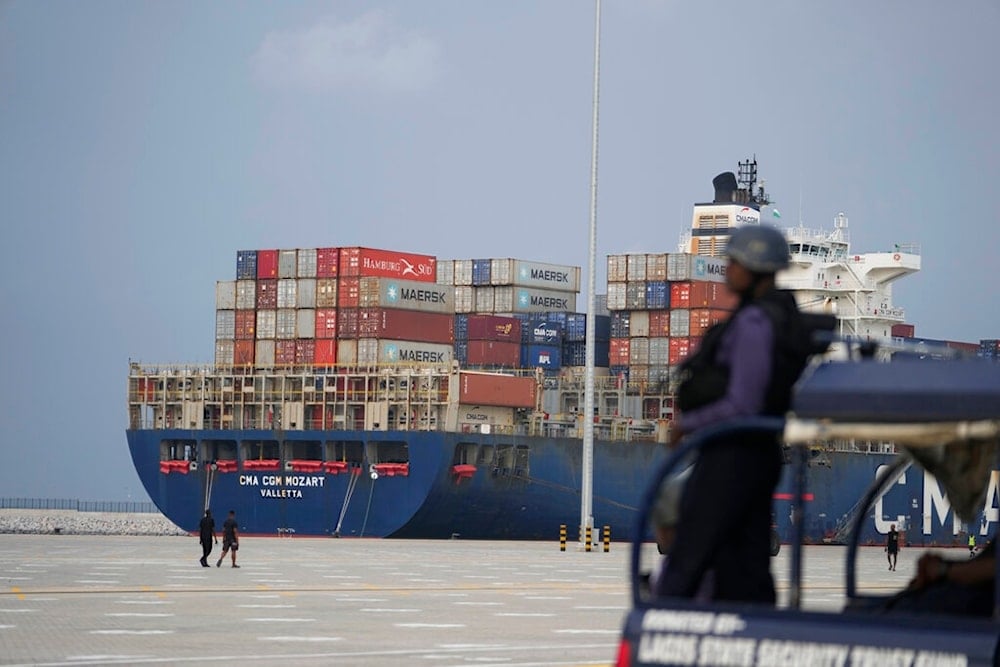Trump's tariff moves threaten African economies, AfDB warns
In South Africa, a 30% duty on citrus exports has alarmed agricultural groups.
-

A Naval officer stands guard as a shipping container is seen at the Lekki deep seaport prior to its commission by Nigeria's President Muhammadu Buhari in Lagos, Nigeria, Monday, Jan. 23, 2023 (AP)
The head of the African Development Bank (AfDB) has issued a stark warning about the devastating ripple effects of the United States' new tariff regime, saying the measures threaten to destabilize African economies already grappling with mounting debt, sluggish growth, and shrinking foreign aid.
Speaking in Abuja on Friday, AfDB President Akinwumi Adesina criticized the trade actions spearheaded by President Donald Trump, particularly the sweeping levies on Chinese imports. While a blanket 10% tariff now applies globally, African nations face the prospect of even steeper duties—part of a broader protectionist shift that has upended long-standing global trade norms.
According to Adesina, 47 African countries are directly at risk. "Inflation will increase as costs of imported goods rise and currencies devalue against the US dollar," he said during a speech at Nigeria's National Open University. He further warned that the burden of external debt will intensify under these conditions: "The cost of servicing debt as a share of government revenue will rise, as expected revenues decline."
The fallout is already tangible in several African countries. In Lesotho, for instance, a 50% tariff on garment exports has jeopardized the future of the textile industry, which employs tens of thousands and constitutes a major share of the national economy. Workers have expressed fears over mass layoffs and factory closures, with many saying they have no alternative means of livelihood.
In South Africa, a 30% duty on citrus exports has alarmed agricultural groups. Farmers warn the sector, central to employment in rural areas, could suffer long-term damage if access to the US market is curtailed. Meanwhile, Ivory Coast has threatened to raise cocoa prices in retaliation for a 21% tariff on its exports, signaling broader tensions between African economies and Washington.
Adesina also noted that beyond trade disruption, the broader global instability will exacerbate existing vulnerabilities. "Europe and Asia will buy fewer goods from Africa," he warned, as countries turn inward or prioritize more stable trade partners in response to market volatility.
Read more: Namibia terminates visa-free entries for 30+ countries, including US
The tariffs come at a particularly sensitive time for Africa, as the continent faces a decline in development assistance. The African Growth and Opportunity Act (AGOA), which provided duty-free access to the US market for years, is now in jeopardy ahead of its scheduled expiration in 2025, leaving many African nations in a precarious position.
The AfDB president noted the potential for long-term damage, not just in economic terms but also with regard to migration and social stability. As aid shrinks and job prospects dwindle, migration pressures are expected to intensify, particularly among youth seeking opportunities abroad.
In response, some African leaders are calling for accelerated efforts to diversify trade through regional mechanisms like the African Continental Free Trade Area (AfCFTA), hoping to reduce reliance on US and European markets.

 3 Min Read
3 Min Read










